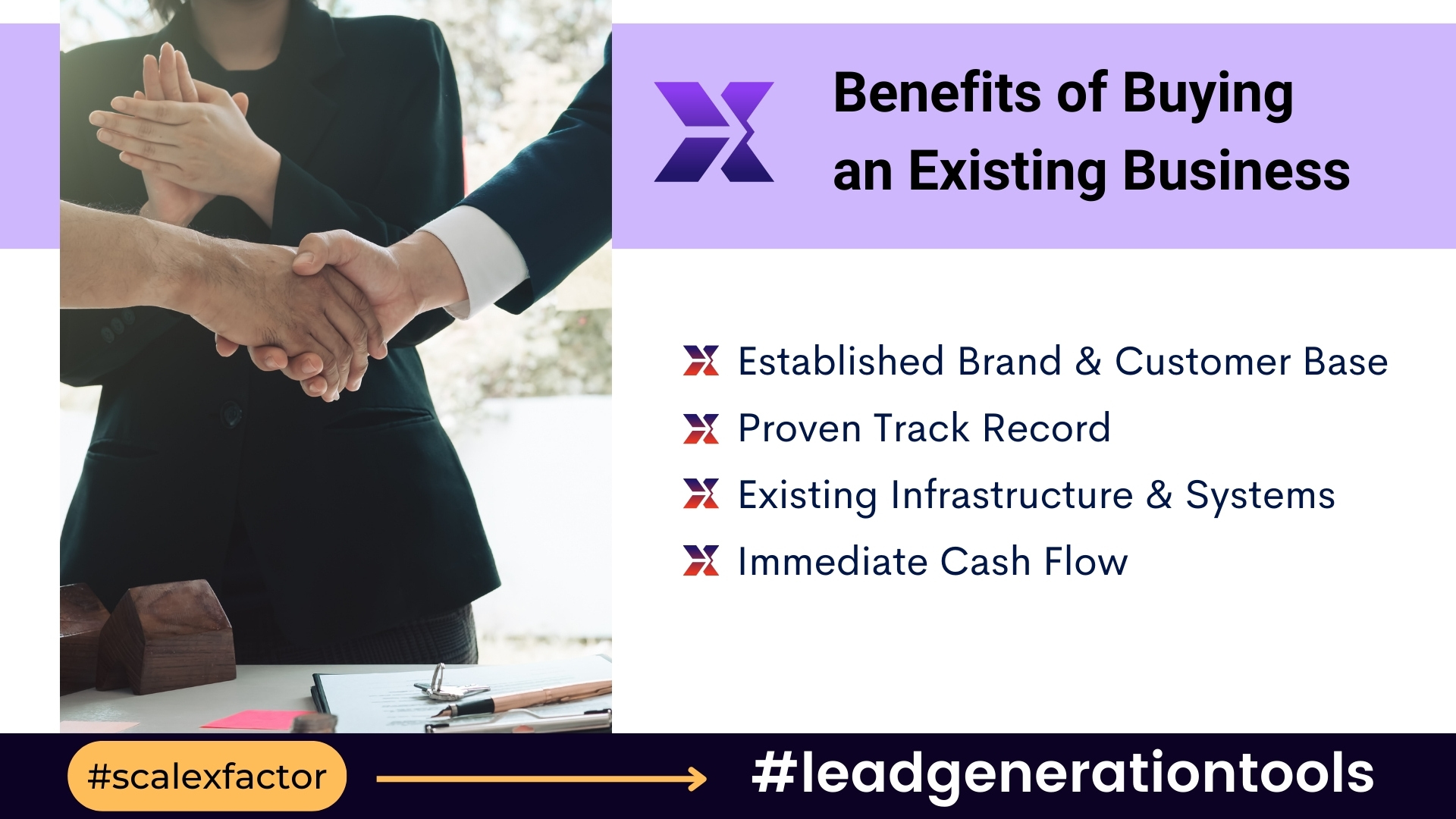Are you considering buying a business in the Houston area? Whether you’re a budding entrepreneur or an experienced investor, finding the right business for sale can be an exciting and profitable venture. In this comprehensive guide, we’ll explore the ins and outs of buying a business in Houston and provide you with valuable insights to make an informed decision. So, let’s dive in!

Table of Contents
| Sr# | Headings |
|---|---|
| 1. | Introduction |
| 2. | Understanding the Houston Business Landscape |
| 3. | Benefits of Buying an Existing Business |
| 4. | Key Considerations Before Making a Purchase |
| 5. | Conducting Thorough Due Diligence |
| 6. | Financing Options for Business Acquisition |
| 7. | Negotiating the Purchase Agreement |
| 8. | Tips for a Smooth Transition |
| 9. | Leveraging Marketing Strategies for Success |
| 10. | Common Challenges and How to Overcome Them |
| 11. | Conclusion |
| 12. | Frequently Asked Questions |
1. Introduction
Are you tired of the nine-to-five grind? Do you dream of becoming your own boss? Purchasing an established business in the Houston area might just be the perfect solution for you. With its thriving economy, diverse industries, and a business-friendly environment, Houston offers a plethora of opportunities for entrepreneurs seeking to invest. This article will guide you through the process of finding and acquiring the right business in this vibrant metropolitan area.
2. Understanding the Houston Business Landscape
Houston is a bustling city known for its robust economy and entrepreneurial spirit. It boasts a diverse range of industries, including energy, healthcare, manufacturing, technology, and more. With its strategic location, favorable tax policies, and access to a large talent pool, Houston has become a magnet for businesses looking to thrive and expand. By tapping into the city’s thriving business ecosystem, you can benefit from a supportive network, potential collaborations, and a customer base ready for new ventures.
3. Benefits of Buying an Existing Business
When it comes to entrepreneurship, buying an existing business offers several advantages over starting from scratch. Here are some key benefits to consider:

- Established Brand and Customer Base: By purchasing an existing business, you inherit its brand recognition and customer loyalty, saving you time and effort in building these from scratch.
- Proven Track Record: An established business already has a track record of success, giving you valuable insights into its profitability, market demand, and growth potential.
- Existing Infrastructure and Systems: With an existing business, you gain access to established operational systems, processes, and trained employees, streamlining your transition and reducing the learning curve.
- Immediate Cash Flow: Unlike a startup, an existing business typically generates immediate cash flow, allowing you to recoup your investment sooner and focus on growth and expansion.
4. Key Considerations Before Making a Purchase
Before you jump into buying a business, it’s crucial to consider the following factors:
- Industry Research: Conduct thorough research on the industry you’re interested in. Understand the current market trends, competition, and future growth prospects to ensure the business aligns with your goals.
- Financial Analysis: Evaluate the business’s financial statements, including revenue, expenses, and profitability. Analyze the cash flow, assets, liabilities, and any potential risks to make an informed financial decision.
- Due Diligence: Perform a comprehensive due diligence process, examining the business’s legal documents, contracts, licenses, and permits. Verify the accuracy of the provided information and identify any potential legal or operational issues.
- Valuation: Determine the fair market value of the business based on its assets, earnings, market position, and growth potential. Seek professional assistance from a business appraiser or consultant if needed.
5. Conducting Thorough Due Diligence
One of the most critical steps in buying a business is conducting thorough due diligence. Here are some areas to focus on:
- Financial Records: Review the business’s financial statements, tax returns, bank statements, and accounts receivable/payable to ensure accuracy and identify any red flags.
- Legal Documentation: Examine contracts, leases, permits, licenses, and any ongoing litigation or disputes that could affect the business’s operations.
- Assets and Inventory: Assess the value and condition of the business’s assets, equipment, and inventory to avoid surprises and accurately determine their worth.
- Customer and Supplier Relationships: Evaluate the business’s relationships with key customers and suppliers to understand the stability of these partnerships and any potential risks.
6. Financing Options for Business Acquisition
Purchasing a business often requires a significant investment. Here are some common financing options to consider:
- SBA Loans: The U.S. Small Business Administration (SBA) offers loans specifically designed for business acquisitions, providing favorable terms and rates for eligible buyers.
- Bank Loans: Traditional banks and financial institutions also offer business acquisition loans, often requiring collateral and a thorough evaluation of your financial history.
- Seller Financing: In some cases, the business owner may be willing to finance a portion of the purchase price, allowing you to make payments over time.
- Investors or Partners: If you have a compelling business plan and growth strategy, you may attract investors or partners who are willing to provide the necessary capital in exchange for equity or profit-sharing.
7. Negotiating the Purchase Agreement
Negotiating the purchase agreement is a critical step in the business acquisition process. Consider the following tips:
- Engage Professional Assistance: Seek the guidance of an experienced attorney or business broker to help you navigate the negotiation process and ensure all legal aspects are addressed.
- Define Terms and Conditions: Clearly outline the terms and conditions of the purchase agreement, including the purchase price, payment terms, non-compete clauses, and any contingencies.
- Perform Final Due Diligence: Before finalizing the agreement, conduct a final round of due diligence to confirm the accuracy of the provided information and address any last-minute concerns.
- Consider an Earn-Out Structure: In certain cases, structuring a portion of the purchase price as an earn-out based on future performance can provide mutually beneficial incentives for both the buyer and the seller.
8. Tips for a Smooth Transition
To ensure a smooth transition after acquiring a business, consider the following tips:
- Develop a Transition Plan: Create a detailed plan to manage the transition period, including employee onboarding, changes to processes, and customer communication strategies.
- Communicate with Employees: Transparently communicate with the existing employees to alleviate any concerns, address questions, and maintain a positive work environment.
- Retain Key Employees: Identify key employees whose knowledge and expertise are vital for the business’s success, and develop strategies to retain them during the transition.
- Maintain Customer Relationships: Assure existing customers of a seamless transition and demonstrate your commitment to delivering the same quality products or services they’ve come to expect.
- Implement Your Vision: Once the transition is complete, begin implementing your business plan, incorporating your vision and strategies for growth.
9. Leveraging Marketing Strategies for Success
Marketing plays a crucial role in the success of any business. Consider these strategies to boost your new business’s visibility and attract customers:
- Digital Marketing: Leverage online platforms such as social media, search engine optimization (SEO), and content marketing to reach your target audience effectively.
- Local Advertising: Advertise in local newspapers, radio stations, and community boards to tap into the local market and attract nearby customers.
- Networking: Attend industry-related events, join local business associations, and engage in networking activities to establish connections and generate leads.
- Referral Programs: Encourage satisfied customers to refer your business to others by implementing referral programs, offering incentives or discounts for successful referrals.
- Customer Reviews and Testimonials: Request reviews and testimonials from satisfied customers, and showcase them on your website and social media platforms to build trust and credibility.
10. Common Challenges and How to Overcome Them
While buying a business can be a rewarding endeavor, it’s essential to be aware of potential challenges. Here are some common obstacles and strategies to overcome them:
- Integration Issues: Merging two business cultures and integrating systems can be challenging. Develop a detailed integration plan and allocate resources to address potential hurdles.
- Financial Constraints: Managing cash flow and financing obligations can be demanding, especially during the initial stages. Maintain a financial buffer and explore cost-saving strategies to mitigate this challenge.
- Market Competition: Competing in a crowded marketplace requires a unique value proposition. Differentiate your business by offering exceptional customer service, innovative products, or competitive pricing.
- Employee Retention: Retaining talented employees who are crucial to the business’s success can be challenging during a transition. Provide incentives, opportunities for growth, and a positive work environment to foster loyalty.
- Changing Industry Landscape: Stay updated on industry trends, technological advancements, and changing consumer preferences to adapt your business strategy and remain competitive.
11. Conclusion
Purchasing a business in the Houston area presents a world of opportunities for aspiring entrepreneurs and investors. By following the steps outlined in this guide and conducting thorough research and due diligence, you can increase your chances of finding a successful business that aligns with your goals. Remember, buying a business is a significant decision, so take your time, seek professional advice when needed, and embark on this exciting journey with confidence.
Frequently Asked Questions
Q1. What are the advantages of buying a business instead of starting one from scratch?
Buying an existing business offers several advantages, including inheriting an established brand and customer base, benefiting from a proven track record, and gaining access to existing infrastructure and systems. It also provides immediate cash flow, unlike starting a business from scratch.
Q2. How do I determine the fair market value of a business?
Determining the fair market value of a business involves evaluating its assets, earnings, market position, and growth potential. Seeking professional assistance from a business appraiser or consultant can help you assess the business’s value accurately.
Q3. What financing options are available for purchasing a business?
Common financing options for business acquisitions include SBA loans, bank loans, seller financing, and attracting investors or partners who are willing to provide the necessary capital.
Q4. What is due diligence, and why is it important?
Due diligence is a comprehensive evaluation process that involves examining the business’s financial records, legal documentation, assets, inventory, and customer and supplier relationships. It is crucial to identify any potential risks or issues before finalizing the purchase agreement.
Q5. How can I market my newly acquired business effectively?
To market your newly acquired business effectively, leverage digital marketing strategies, engage in local advertising, network with industry professionals, implement referral programs, and showcase customer reviews and testimonials to build trust and credibility.
Remember, buying a business requires careful consideration, thorough research, and strategic planning. By following the steps and tips provided in this guide, you’ll be well-equipped to navigate the process of acquiring a business in the Houston area successfully. Happy business hunting!




